After-work innovation event: “an industry with a future and the future of all industries”
The fifth edition of the Innovation Afterwork event took place on Monday, July 8, at the Jardin des Plantes in Montpellier. It was an opportunity to highlight the role and involvement of the Montpellier University Innovation Hub , which was one of five pilot institutions in this field in 2021. After two enlightening round tables on public-private partnerships, six researchers received an innovation award from President Philippe Augé.
On the temporary stage at the Jardin des Plantes on Monday, July 8, the University of Montpellier celebrated the union of two worlds. At the fifth edition of the Afterwork de l'Innovation event, research and business said "I do." Tested in 2021 at the University of Montpellier, the University Innovation Hub (PUI), which oversaw the event, aims to "bring together the entire innovation ecosystem without creating new structures," said President Philippe Augé at the podium.
In just one year, the University has welcomed 62 start-up projects, supported 12 deep tech start-ups, and hosted numerous companies on campus. This fruitful buzz was welcomed by all those present on Monday evening, including representatives of the State and the region, as well as figures from the economic world such as Anne-Lise Melki, Managing Director of the Hérault-based design office Biotope, Europe's leading ecological engineering firm, and Alexandra Prieux, president of the Montpellier-based company Alcediag, a specialist in innovative diagnostics.
Provide visibility
"When people talk to me about innovation, I deeply understand their hopes, their projects, and what they need," said Jalil Benabdillah, vice president of the regional council in charge of the economy. Completely in his element, this trained engineer has had a similar career path to many of the young startup founders supported by the PUI."Innovation is cross-cutting; it affects all areas. It has become an industry of the future, and the future of all industries," said the elected official, who would like to see the number of new innovative young companies (JEIs) increase from around 50 per year to around 100 across Occitanie. But according to him, it must now include several major issues, such as "climate emergency, " "technological and digital transformation," and "social and societal transformation."
The same enthusiasm was expressed by Khaled Bouabdallah, Vice-Chancellor for Higher Education, Research, and Innovation, who applauded the"significant strengthening of the impact of innovation on the economy and society" since the creation of the PUI. In short, there is unwavering institutional support, as corroborated by Hind Emad, Vice President of Montpellier Metropolitan Area in charge of digital technology, who also highlighted the community's actions—citing the example of MedVallée in the field of health—as well as the importance of shared governance alongside the University "to give visibility to innovative companies" in the region.
Meet the market
Two round tables brought together researchers, entrepreneurs, and agents from public organizations dedicated to innovation to distill some practical advice, supported by examples, for successful partnerships. One example was the discussion with Claude Grison, research director at the CNRS, who spoke alongside Pierre Le Blainvaux from Technofounders and Sandrine Guerreiro, licensing manager at the CNRS. The first two co-founded the start-up Laboratoires Bioprotection, which produces the innovative mosquito repellent Crusoé. "I have always wanted my work to be useful to society," said Claude Grison, who holds around 30 patents and has won numerous awards.
The second round table discussion took place in the presence of Vincent Abello, representative of SpyGen, a company specializing in environmental DNA, Léa Mazel, head of contracts and commercialization at the UM's Innovation and Partnerships Department, and David Mouilot, researcher at the Marbec laboratory. This was an opportunity for Mouilot to emphasize that the relationship with the company allows scientists "to conduct research with less mental burden." "It's a great opportunity to rub shoulders with people from the private sector in terms of framing, realism, meeting the market, etc.,"said the marine ecology expert, who is currently working on the potential of coastal resources in reducing poverty in East Africa.
Although relations between the two worlds can sometimes be complex, at the end of the event, the various stakeholders seemed determined to remove the obstacles one by one. "We need to speak the same language, use the same stopwatch and follow the same compass," emphasized Philippe Combette, vice president of the university in charge of partnerships and innovation. "It's not easy to work with public research," added Biotope CEO Anne-Lise Melki, " but it's very important and useful to do so, starting with small collaborations to get to know each other better." This ambition is shared by President Philippe Augé: " Let's break down barriers! To create wealth together in the region..."
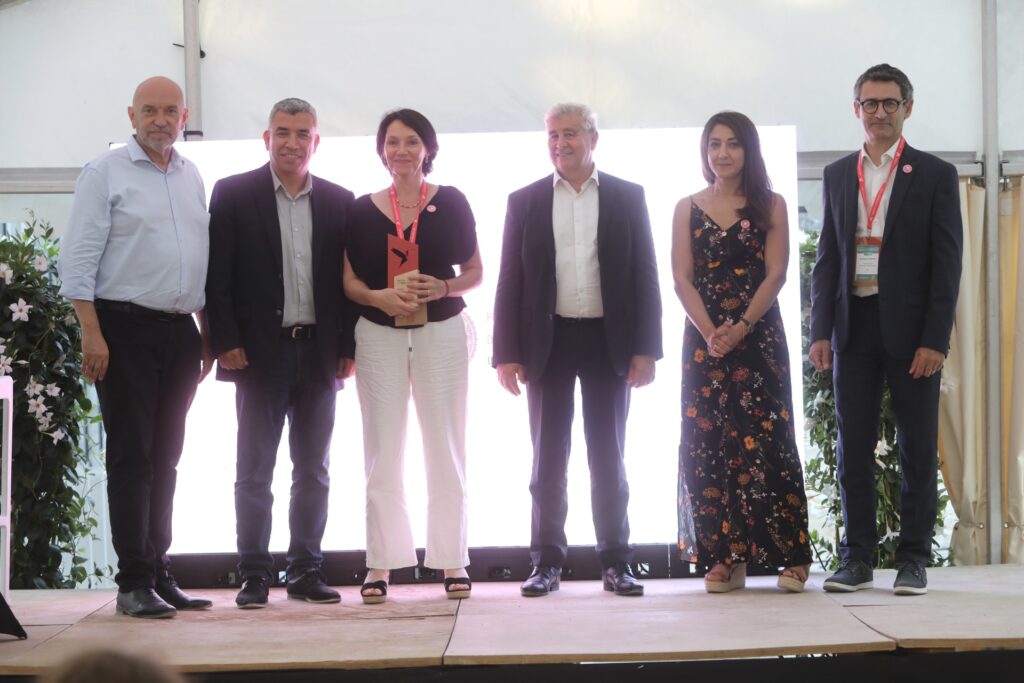
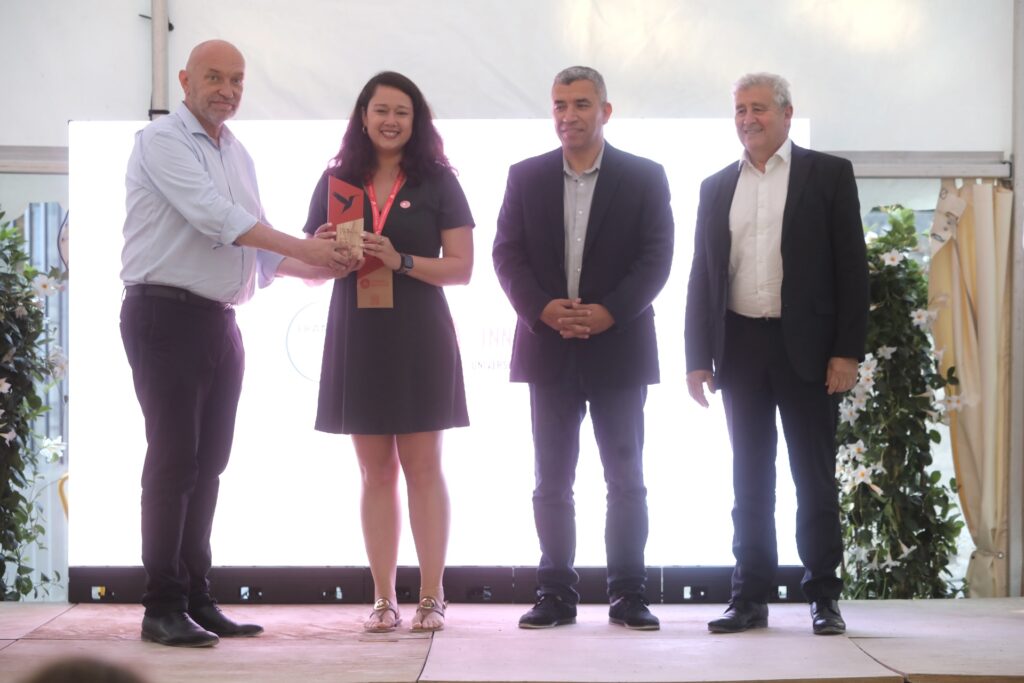
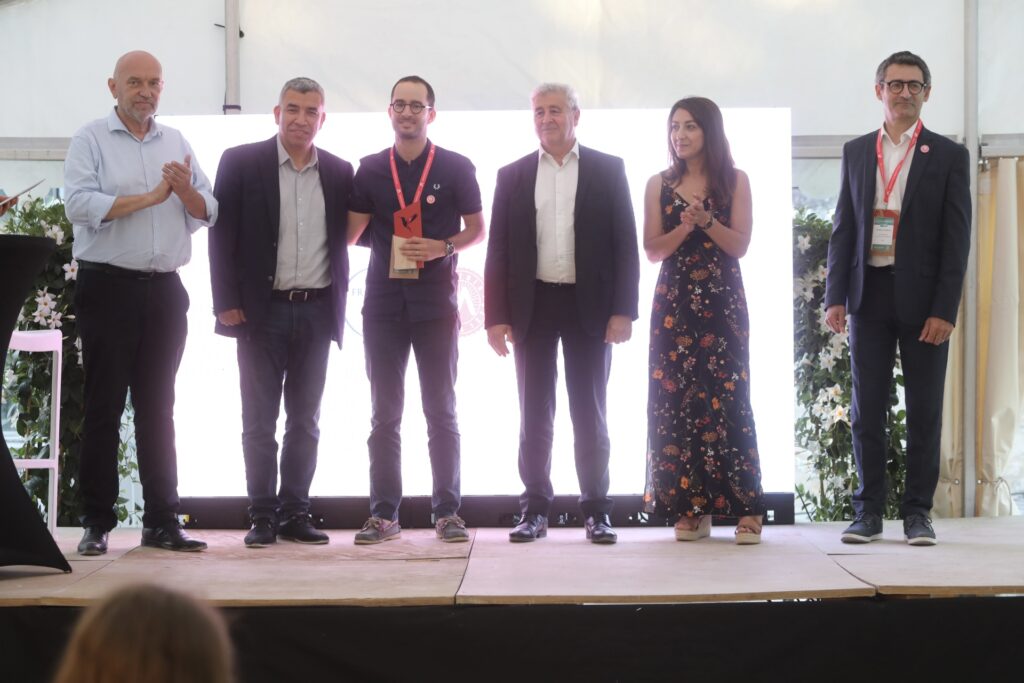
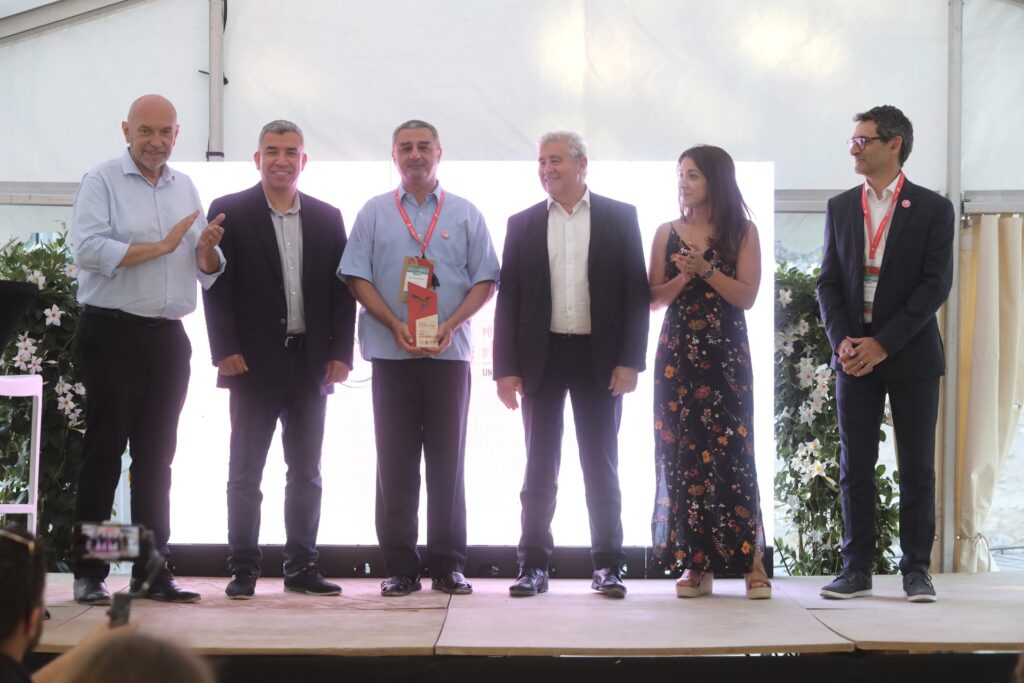
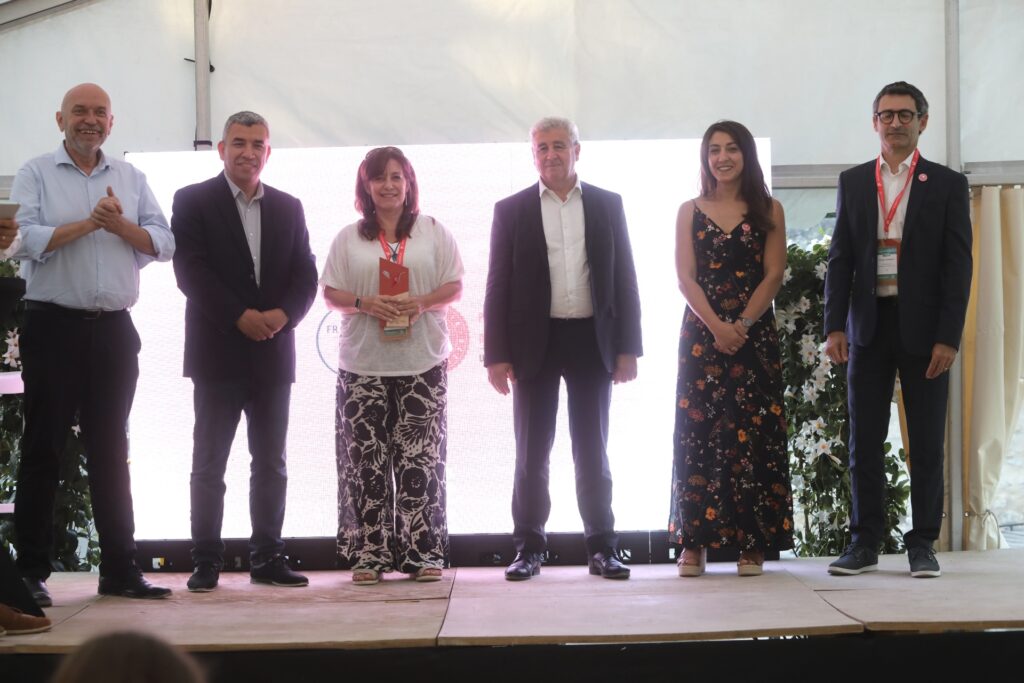
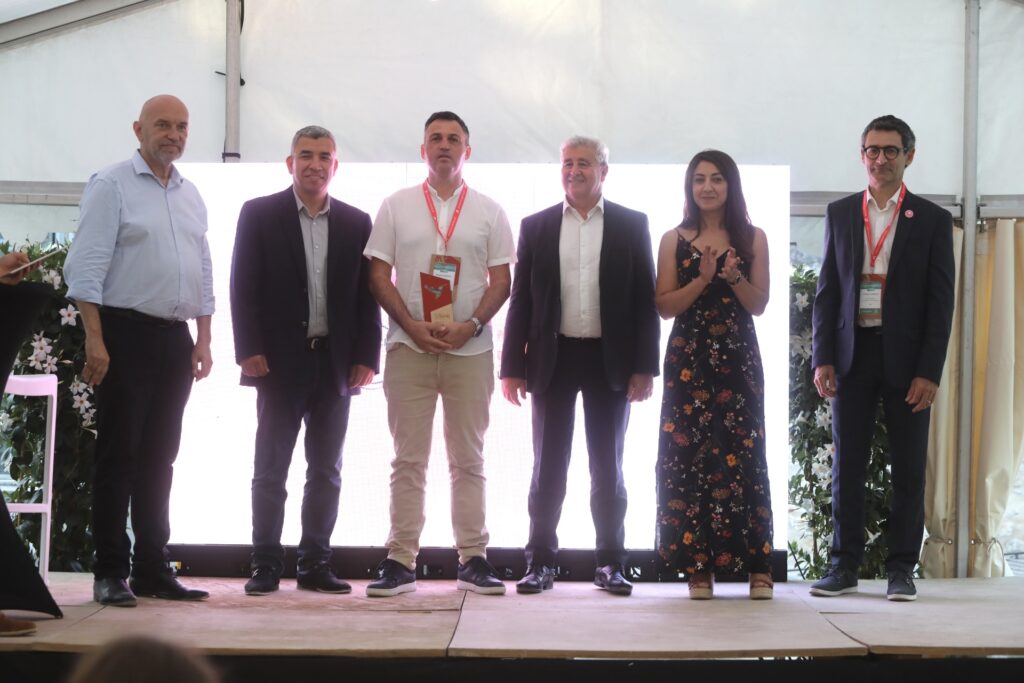
Six gems rewarded
At the end of the evening, six gems of Montpellier-based research took to the stage to receive one of six innovation awards. One by one, Sarah Colombani (from the PhyMedExp laboratory) was rewarded for developing a treatment capable of curbing a recurring malfunction in mechanical ventilation; Isabelle Bourdon (MRM) was honored for a project aimed at strengthening the traceability of patient consent in clinical trials; Damien Voiry (IEM) for his project to recover and convert CO2 into ethylene; Philippe Rondard (IGF) for an innovative treatment for brain diseases using immunotherapy; Frédérique Aberlenc (Diade) for her early sexing device for palm trees; and finally Bijan Mohammadi (IMAG) for his artificial intelligence system capable of learning from humans... All of these projects are innovative—even revolutionary—and poised to conquer the market.